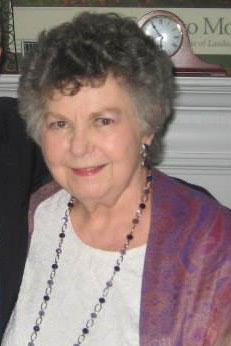Gone With the Wind: Remembering Claire Bentley Foster
Pub Notes

Claire Bentley Foster
A Georgia aristocrat died shortly before Thanksgiving. I mention Claire Bentley Foster here not because she was a celebrity, which she wasn’t, and not because she was my friend, which she was. I write about her because she personified Georgia history, and her life reminds us of who we are. She was straight out of Gone With the Wind, but much closer to the real than to the romanticized, and she had the beauty and headstrong passion for living attributed to Scarlett O’Hara. Claire grew up on Middle Georgia land first settled by her forebears shortly after the founding of our country. Her home looked across the road to the family cemetery sheltering 27 direct ancestors, whose lives linked her back to the early 1800s. Her farmhouse home was not grand, as the real Tara would not have been. Hers was a working farm, and her father was not a squire but a country entrepreneur who scrambled to support his family and rose through his own efforts, as did her mother and all those Trices, Abercrombies and Reeveses who slept across the road.
Claire loved the land, with its creek and rolling hills and her friends, the cows. She was the youngest and the only girl, with three older brothers, the closest, Melvin, only a year older than Claire, almost her twin. He, too, loved the land and wrote poems about it and photographed it and the old houses that were fast disappearing. “Wander the lonesome land, while it is still lonesome…” he wrote in a poem later published in The Georgia Review.
There is a pattern in Georgia history, now dying out, of people growing up on farms and coming up here to attend the University of Georgia and eventually making it to Atlanta to work and raise their families, while never forgetting their roots in the Georgia soil.
Claire and her brothers followed that path. James led the way, becoming a campus political leader and a follower of family friend Herman Talmadge, working for Talmadge after law school and eventually winning two terms as Georgia’s comptroller general and insurance commissioner. Preston became a much-beloved public school teacher in Atlanta after service in the Army. Melvin was a scholar and writer whose life was tragically cut short in a fire when he was 30.
At the university, Claire met Chris Foster, the son of Greek immigrants. Their marriage united her ancestral line with one even older, and they moved to Decatur, where they reared their two sons, while Chris practiced law in Atlanta and eventually became a Georgia administrative law judge. Claire, not surprisingly, immersed herself in genealogy and became the go-to source for the knowledge of her forebears so deeply embedded in Georgia history. She sustained her visceral connection to the land, overseeing, with Chris, the maintenance of the farm and the cemetery, with the ever-present assistance of Claire’s farmer-cousin, Danny Bentley.
Claire is buried now in the rock-walled cemetery with her parents, her brothers and their ancestors. Chris and their son Alex now carry on her stewardship of the graveyard and of the land she loved.
Her favorite spot there was Melvin’s Hill, so called because he loved it, roamed it and wrote about it. After her burial, family and friends gathered there, as is their custom, to watch a glowing and ever-changing winter sunset spread out against the southwestern sky. Claire had come home for the last time, after a long and stubborn fight against cancer, leaving the life she loved as passionately as she loved the land, always trying to make it better and expecting the same from others.
Claire Bentley Foster personified the best of her state. She was uncompromising but without prejudice. She was fiercely loving and loyal to family and friends but quick to demand their best. She was untiring in her efforts to do what needed to be done and delighted with the accomplishments of others. Her life followed a trajectory from the local and rural to the urban and cosmopolitan, while remaining true to herself and her origins. To the extent that we can emulate her example, we’ll be better people and ours a better state.
Keywords
More by Pete McCommons
-
Voting Absentee: Necessary But Not Easy
Pub Notes
-

Be Ready When National TV Comes Calling
Pub Notes
-










comments